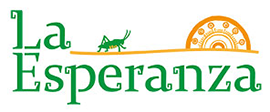
In addition to the disproportionate effects of COVID-19 on health, COVID-19 has amplified achievement and educational disparities across income levels and between white students and students of color. As an increasing number of school districts in Delaware are deciding to begin the school year in a remote-based model, educational leaders must be cognizant of the major challenges of virtual learning for Latino students and their families. They must identify and address the roadblocks that threaten to increase inequities in order to prevent significant setbacks in students’ academic progress.
For many Latino families, access to technology and reliable internet was a significant issue before, and it has been exacerbated by COVID-19. Simply put, many families cannot afford computers or the monthly cost of broadband internet. Many families may not even have the infrastructure needed for home internet services. To insure that all students learn remotely, the Delaware Department of Education, school districts and community non-profit and for-profit organizations are collaborating to put the required components in place. CARES ACT funding along with support from foundations and private donors is building the capacity needed to connect students at home to their school classrooms. Gaps in infrastructure, internet service, and required hardware including computers must be quickly identified so that students do not lose school “days”. In many cases, additional support and resources will be needed to fill in gaps.
Effective communication between schools and Latino families continues to be a significant challenge. Specifically, the language barrier for families prevents them from successfully integrating into the school community, which hinders their ability to help their child academically. To address this challenge, school districts must insure that Latino families receive all important communications in Spanish, in timely and effective ways. Interpretation and translation services must be available within the school setting. In order for the necessary engagement of Spanish-speaking parents to help their children who are learning remotely, it is critical that Spanish-speaking school personnel be available to help parents. It is important that schools formally plan with Latino-serving, education-focused non-profits to support learning at home.
In addition, it is important to remember that the vast majority of Latino parents have continued to work outside of their homes throughout the pandemic because society has deemed their work as essential to our economy. Since many Latino school-age children will be left at home alone or in the care of another family member, there is a great need for safe, affordable care and supervision close to home while schools are closed. Again, there is an opportunity for communities, schools, and organizations to plan approaches to support our immigrant families. Opportunities for libraries, churches and stay-at-home parents and others to provide small group learning and care abound.
By working together to find plausible solutions to identified needs, we can bridge gaps and reduce educational disparities for Latino students for the upcoming school year.
Rony Baltazar-Lopez
La Colectiva Steering Committee Member
Milford School District Board Vice President
